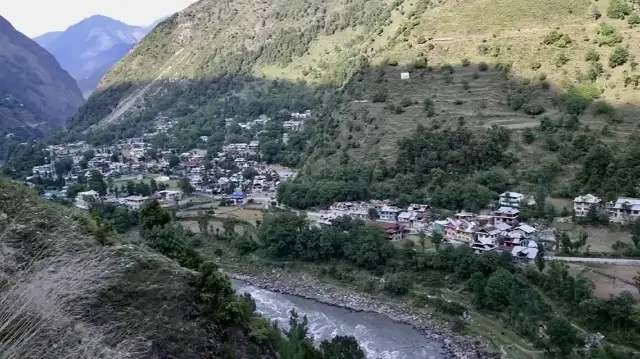The promise still owed to Kashmir

Reklam yükleniyor...
Reklam yükleniyor...
On 27 October 1947, Indian troops landed in Srinagar. For the people of Jammu & Kashmir, that day became a turning point — commemorated as Kashmir’s Black Day — when a hope for self-determination was interrupted by a military presence that would harden into a decades-long occupation. The world did not let the matter rest there. India’s own leaders publicly pledged that Kashmiris would decide their future, and the dispute was referred to the United Nations, which prescribed a UN-supervised plebiscite as the lawful mechanism to resolve the question. Those promises, solemn and binding in international law, remain unfulfilled — and that failure is not merely a historical grievance. It matters to peace, to justice, and to global credibility.
In late 1947 and the years directly after, India’s leadership — most notably Prime Minister Jawaharlal Nehru — repeatedly affirmed that the people of Jammu & Kashmir would be allowed to determine their own fate. When New Delhi took the issue to the United Nations, the UN issued Resolution 47 (1948) that envisioned demilitarisation and a plebiscite under impartial international supervision. The UN’s prescriptions were not exhortative; they set out concrete steps for creating the conditions of a free vote. The international community, therefore, bears a responsibility not simply to remember these words but to act on them.
Instead of a credible referendum, Kashmiris have endured patterns of repression and erosion of political agency. Credible UN reporting in recent years has documented a catalogue of human-rights concerns in Indian Illegally Occupied Jammu and Kashmir (IIOJK): arbitrary detentions, enforced disappearances, restrictions on movement and expression, and a climate of impunity for security forces. These findings — compiled by the UN Office of the High Commissioner for Human Rights after careful review — underline that the problem is not only political but profoundly humanitarian. International human-rights bodies have also called for independent investigation and accountability; these calls deserve more than muted diplomatic notes.
The erosion of Kashmir’s political safeguards became starker on 5 August 2019, when New Delhi revoked the region’s limited autonomous status and restructured its governance. The move was accompanied by mass arrests, long communications blackouts, and an expanded security footprint — all of which have deepened the sense that the instruments of representative politics have been hollowed out rather than restored. Observers warned that a combination of administrative re-engineering and new domicile laws risked altering the demographic balance and the character of the Valley, raising existential fears among local communities. That is not merely a domestic policy argument; it is a change to the status of a territory that the UN long ago treated as disputed.
To be clear: calling for the implementation of UN mandates and the restoration of political dignity is not a call for violence or for destabilising the region. It is a call to honour commitments. It is a principled insistence that the right to self-determination — the right that undergirds modern international order — should not be allowed to wither by attrition. When promises made in the immediate post-war era become convenient historical footnotes, the consequences are predictable: grievance deepens, civic space contracts, and radical narratives find purchase where legitimate political channels have failed. These dynamics matter, particularly when the dispute sits between two nuclear-armed states.
What can be done? First, the international community must treat Kashmir as a matter of human rights and international law that requires multilateral engagement. This does not imply imposing solutions without consent; it means re-energising the UN mechanisms that were intended to secure an impartial and fair plebiscite in IIOJK. Second, an independent, international inquiry into reported abuses should be supported and allowed to operate without obstruction. Third, diplomatic pressure should be calibrated to create space for political rehabilitation: release of political detainees, restoration of communications and civic freedoms, a halt to demographic engineering, and credible guarantees for political participation.
For Pakistan and for many Kashmiris, the phrase used is exact and unvarnished: Indian Illegally Occupied Jammu & Kashmir (IIOJK). For international audiences attuned to legal standards, that phrasing signals the core claim: the imposition of effective authority without the freely expressed consent of the governed. The UN’s early resolutions were intended to put people — not an occupation regime— at the centre of the decision that would define their destiny.
There is also a sober strategic imperative. Ignoring the unfinished business of Kashmir makes the region not only a moral failure but a security risk. The line that separates two nuclear states should not be the site of chronic injustice. The world has a stake in preventing escalation; upholding the rule of law and credible political processes is the most practical way to reduce that risk.
On each anniversary of 27 October, Kashmiris tell the same story with the same question: who will keep the promise? That question is not simply rhetorical. It is a demand that the international community translate decades of pledges into concrete measures that restore agency to the people at the heart of the dispute. Honouring that obligation would be a measured, lawful, and humane contribution to regional stability — and a long overdue act of justice.
Reklam yükleniyor...
Reklam yükleniyor...







Comments you share on our site are a valuable resource for other users. Please be respectful of different opinions and other users. Avoid using rude, aggressive, derogatory, or discriminatory language.